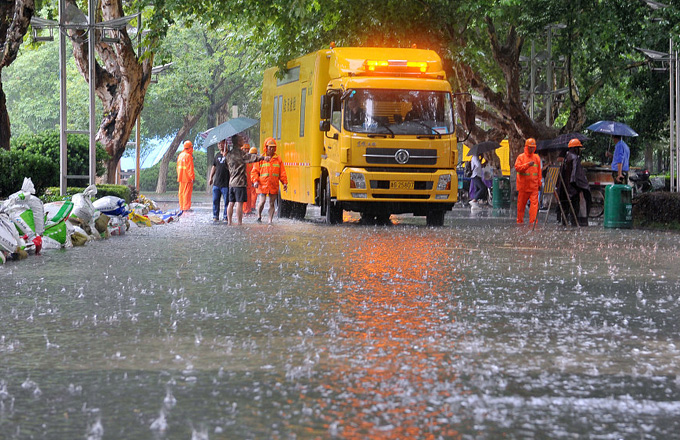Build stable base areas in the Dabie mountains
August 27, 1947
1) Our army has crossed the Huaihe River and thrust into the Dabie Mountains, utterly thwarting the enemy's plan of pursuit. The task ahead is to wholeheartedly and unwaveringly build stable base areas in the Dabie Mountains and, in co-ordination with the friendly corps, gain full control over the Central Plains.
2) Accomplishing this historic task requires a painstaking process; it will take us more than six months to expand the base areas. Unless we annihilate large numbers of enemy troops and fully arouse the masses, it would be impossible for us to gain a firm foothold. Therefore, we should not become conceited or impetuous but should conscientiously fulfil every single task with one mind.
3) We should explain to the whole army why we are certain of victory. First, we have the co-operation of the Chen-Xie Army, operating in the vast area of the Funiu Mountains and western and southern Henan, and of the Shandong army, operating north and south of the Longhai Railway. Second, we are confronted with only 23 enemy brigades, whose troops are dispersed and whose morale is low; at the same time, the enemy is in a more passive position strategically after failing in its recent pursuit operation. Third, the people in the Dabie Mountain area have a long revolutionary tradition and are experienced in guerrilla warfare. There are also a good many local cadres. We are sure of victory especially due to the wise leadership of the Central Committee and Chairman Mao, and the strong determination and confidence of the officers and men throughout the army. We have difficulties, but we can overcome them.
4) We should explain to the people in the whole area that we, the people's own army of Hubei, Henan and Anhui that has been victorious in north China and has expanded its ranks, are back home now. We should explain to them why the Kuomintang troops are bound to fail and why our army is certain to win and that we shall never leave again. Our vow is to live or die together with the people of Hubei, Henan and Anhui provinces, to liberate the Central Plains and to emancipate the people of these provinces.
5) Militarily, in the first month we shall not seek to fight large-scale battles, but to occupy cities and towns, eliminate bandits and diehards, and win some small battles (for instance, annihilating one or two enemy regiments at a time). Meanwhile, we should particularly urge our officers and men to familiarize themselves with the terrain, become used to things here and learn how to fight mountain warfare, so as to prepare themselves for large-scale battles of annihilation. However, we must be aware that unless we wipe out more than ten enemy brigades within six months, we shall not be able to convince the masses that we are here to stay to support their courage to rise up and fight, and as a result we shall encounter even more difficulties. Therefore, the entire army must always maintain a high morale and be ready to fight.
6) Fully arousing the masses to wage guerrilla warfare and fight shoulder to shoulder with us is a decisive factor in the fulfilment of our strategic tasks. Our troops' strict adherence to the Three Main Rules of Discipline and the Eight Points for Attention and to the rules of conduct are preconditions for creating a favourable impression with the masses, so that they will never hesitate to get in contact with us. Army units at all levels must make special efforts to see to it that these regulations are observed without fail.
(Directive issued to subordinate army units in the name of the Central Plains Bureau of the Central Committee of the Chinese Communist Party and submitted to the Military Commission of the Central Committee in the names of Liu Bocheng and Deng Xiaoping on August 30. After Comrade Mao Zedong read it and wrote some instructions on it, it was issued to Comrade Peng Dehuai, the Northeast Bureau and the East China Bureau.)
(From Selected Works of Deng Xiaoping, Volume I <1938-1965>)
- China issues guidelines to develop 'all-for-one' tourism demonstration zones
- Torrential rain triggers disaster in Southwest China
- Harvest time for wheat reapers in Shanxi
- Over 200 couples marry in Changchun group wedding
- Calligraphy tops other icons of Chinese culture, WeChat data shows

























